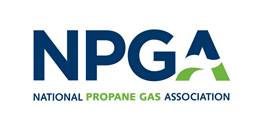Monday, July 9, 2018
WASHINGTON, DC (July 9, 2018) – On July 5, the National Propane Gas Association (NPGA) strongly opposed certain provisions of the Occupational Safety and Health Administration’s (OSHA) Notice of Proposed Rulemaking (NPRM) that addresses operator qualification for Cranes and Derricks in Construction. 
In its 244-page comment, NPGA stated that OSHA should expressly exclude the operation of cranes in the delivery or retrieval of propane containers from the regulation. To require propane field technicians who use cranes to deliver/retrieve propane containers to obtain the same third-party certifications as construction crane operators would be unlawful, would impose costs far greater than any purported benefits, and would violate fundamental principles adopted by the administration of President Donald J. Trump concerning agency rulemaking.
NPGA President and CEO Richard Roldan said, “Through our comment, OSHA should conclude that the use of a crane by propane field technicians to deliver or retrieve propane containers is not an activity within the scope of the Cranes and Derricks in Construction regulation. Past errors by the agency must be corrected in the final rule, and should it be necessary, OSHA should delay the current November 10, 2018 compliance deadline to afford the agency appropriate time to review and rectify these issues.”
More than 700 comments were received by the deadline, and of those, nearly 90 percent supported NPGA’s position. The Cranes and Derricks in Construction proposal was open for comment between May 21, 2018 and July 5, 2018.
NPGA has long-held objections to the regulation and its applicability to the propane industry. At the onset, NPGA challenged the regulation’s relevance to propane tank delivery and subsequently argued for exclusion from the regulation. However, OSHA maintains that the regulation is activity-specific rather than industry-specific; therefore, the requirements of the regulation may cover some propane tank deliveries by articulating or mobile cranes.
To see the comment, visit NPGA’s website. For more information, please contact Sarah Reboli, Director of Regulatory Affairs, or Mike Caldarera, Vice President of Regulatory & Technical Services.
The National Propane Gas Association is the national trade association of the propane industry. NPGA represents approximately 2,800 companies, including producers, wholesalers, transporters, and retailers of propane gas as well as the manufacturers and distributors of associated propane equipment and appliances. 50 million Americans choose propane as their energy source. Propane is an abundant, American resource that supports small businesses and protects the environment. For more information about NPGA and the propane gas industry, visit NPGA online at www.npga.org.

In its 244-page comment, NPGA stated that OSHA should expressly exclude the operation of cranes in the delivery or retrieval of propane containers from the regulation. To require propane field technicians who use cranes to deliver/retrieve propane containers to obtain the same third-party certifications as construction crane operators would be unlawful, would impose costs far greater than any purported benefits, and would violate fundamental principles adopted by the administration of President Donald J. Trump concerning agency rulemaking.
NPGA President and CEO Richard Roldan said, “Through our comment, OSHA should conclude that the use of a crane by propane field technicians to deliver or retrieve propane containers is not an activity within the scope of the Cranes and Derricks in Construction regulation. Past errors by the agency must be corrected in the final rule, and should it be necessary, OSHA should delay the current November 10, 2018 compliance deadline to afford the agency appropriate time to review and rectify these issues.”
More than 700 comments were received by the deadline, and of those, nearly 90 percent supported NPGA’s position. The Cranes and Derricks in Construction proposal was open for comment between May 21, 2018 and July 5, 2018.
NPGA has long-held objections to the regulation and its applicability to the propane industry. At the onset, NPGA challenged the regulation’s relevance to propane tank delivery and subsequently argued for exclusion from the regulation. However, OSHA maintains that the regulation is activity-specific rather than industry-specific; therefore, the requirements of the regulation may cover some propane tank deliveries by articulating or mobile cranes.
To see the comment, visit NPGA’s website. For more information, please contact Sarah Reboli, Director of Regulatory Affairs, or Mike Caldarera, Vice President of Regulatory & Technical Services.
The National Propane Gas Association is the national trade association of the propane industry. NPGA represents approximately 2,800 companies, including producers, wholesalers, transporters, and retailers of propane gas as well as the manufacturers and distributors of associated propane equipment and appliances. 50 million Americans choose propane as their energy source. Propane is an abundant, American resource that supports small businesses and protects the environment. For more information about NPGA and the propane gas industry, visit NPGA online at www.npga.org.

